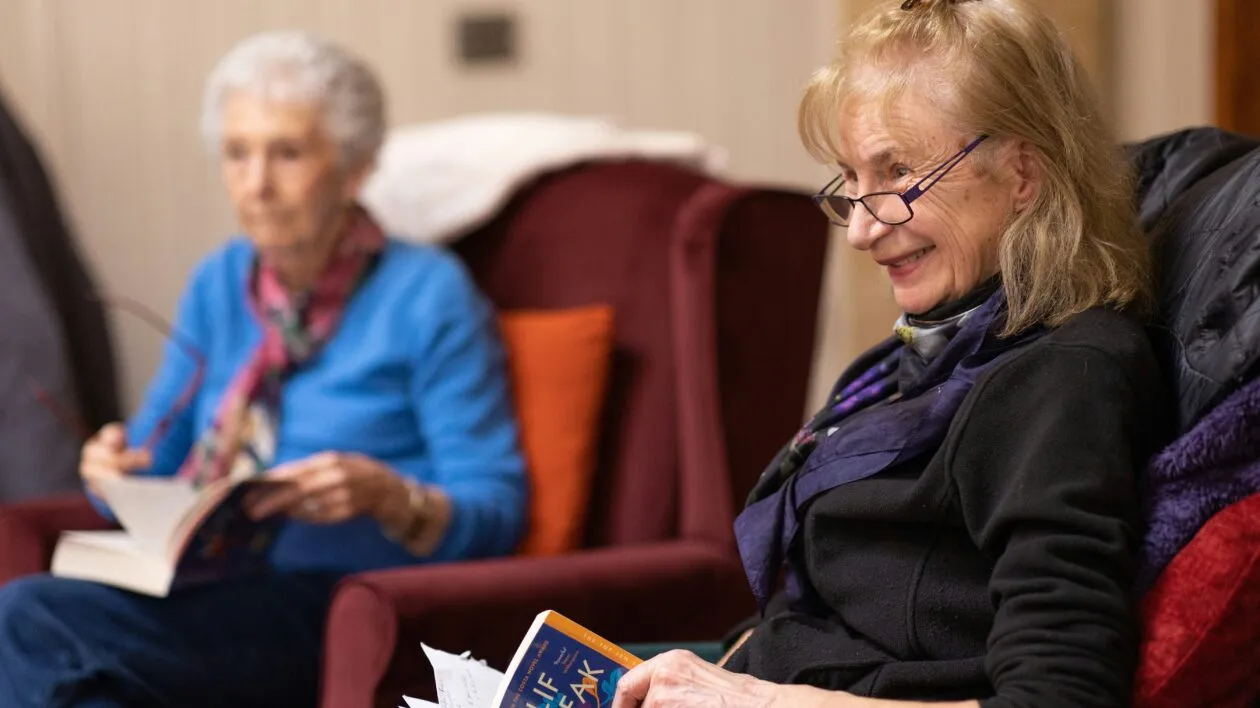Navigating a loved one’s dementia diagnosis can be overwhelming. These top 5 books provide essential insights, practical tips, and compassionate advice to help families and caregivers understand and support their loved ones through the journey.
Navigating the journey of a loved one’s progressing dementia can be both challenging and heart-wrenching. The need for understanding, compassion, and practical advice becomes paramount. Here, we’ve curated a list of the top 5 books that can help families and caregivers better understand dementia, offering practical tips and empathetic guidance along the way.
1.”A Dignified Life: The Best Friends Approach to Alzheimer’s Care” by Virginia Bell and David Troxel
Why This Book?
David Troxel’s “Best Friends Approach to Dementia Care” is a transformative method focusing on building deep, meaningful relationships with dementia patients, treating them as best friends. This approach emphasizes respect, empathy, and emotional connection, which can significantly enhance the quality of life for caregivers and those with dementia.
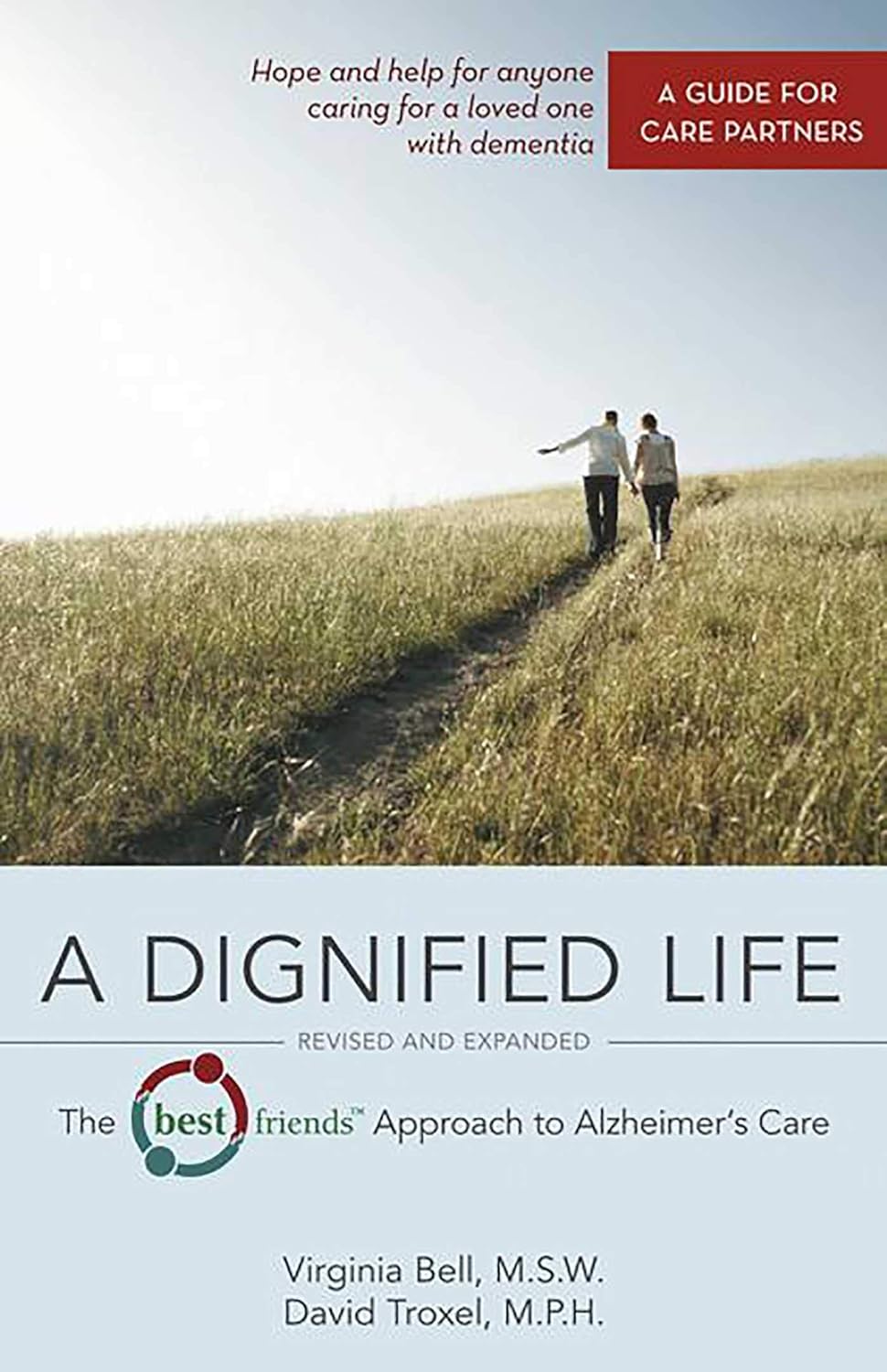
Key Insights:
Person-Centered Care: The Best Friends Approach centers on personalized care, understanding each individual’s unique history, preferences, and needs.
Emotional Connection: Building a solid emotional bond, like a best-friend relationship, helps provide better care and support.
Practical Tips: Offers actionable advice on implementing this approach in daily caregiving, from communication techniques to creating a supportive environment.
Tips for Caregivers:
Learn Their Life Story: Take the time to learn and remember important details about the person’s life, which can help create meaningful interactions.
Empathetic Listening: Listening empathetically and patiently, validating their feelings and experiences.
Positive Reinforcement: Use positive reinforcement to encourage and support your loved one, celebrating small achievements and moments of joy.
2.”The 36-Hour Day” by Nancy L. Mace and Peter V. Rabins
Why This Book?
“The 36-Hour Day” is often considered the bible for dementia caregivers. This comprehensive guide covers everything from the basics of dementia to detailed caregiving strategies.
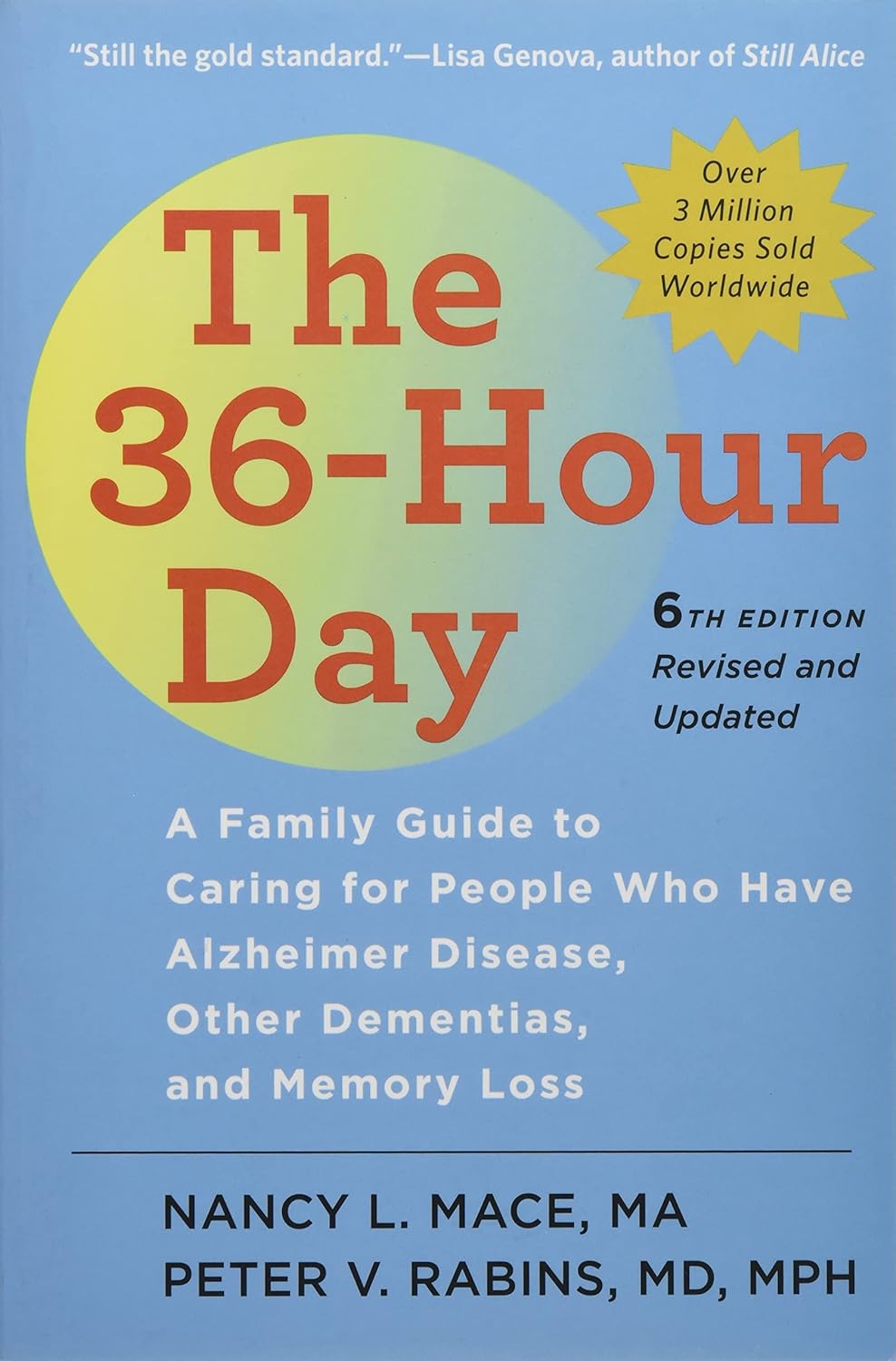
Key Insights:
- Understanding Dementia: The book thoroughly explains dementia, including its various forms, such as Alzheimer’s disease.
- Practical Tips: It offers practical advice on managing common behavioral and psychological symptoms, ensuring safety, and maintaining a caregiver’s health.
- Emotional Support: The authors of these books understand the emotional toll of caregiving. They emphasize the importance of emotional well-being for caregivers, offering coping strategies and a virtual shoulder to lean on.
Tips for Caregivers:
- Routine and Consistency: Establishing a daily routine can provide a sense of stability and predictability for both the caregiver and the person with dementia.
- Communication Strategies: Simple, clear communication is critical. Use short sentences and give time for response.
3.”Dementia Reimagined: Building a Life of Joy and Dignity from Beginning to End” by Tia Powell, MD
Why This Book?
Dr. Tia Powell’s “Dementia Reimagined” offers a unique blend of medical expertise and personal experience, making it a profoundly empathetic and informative read.
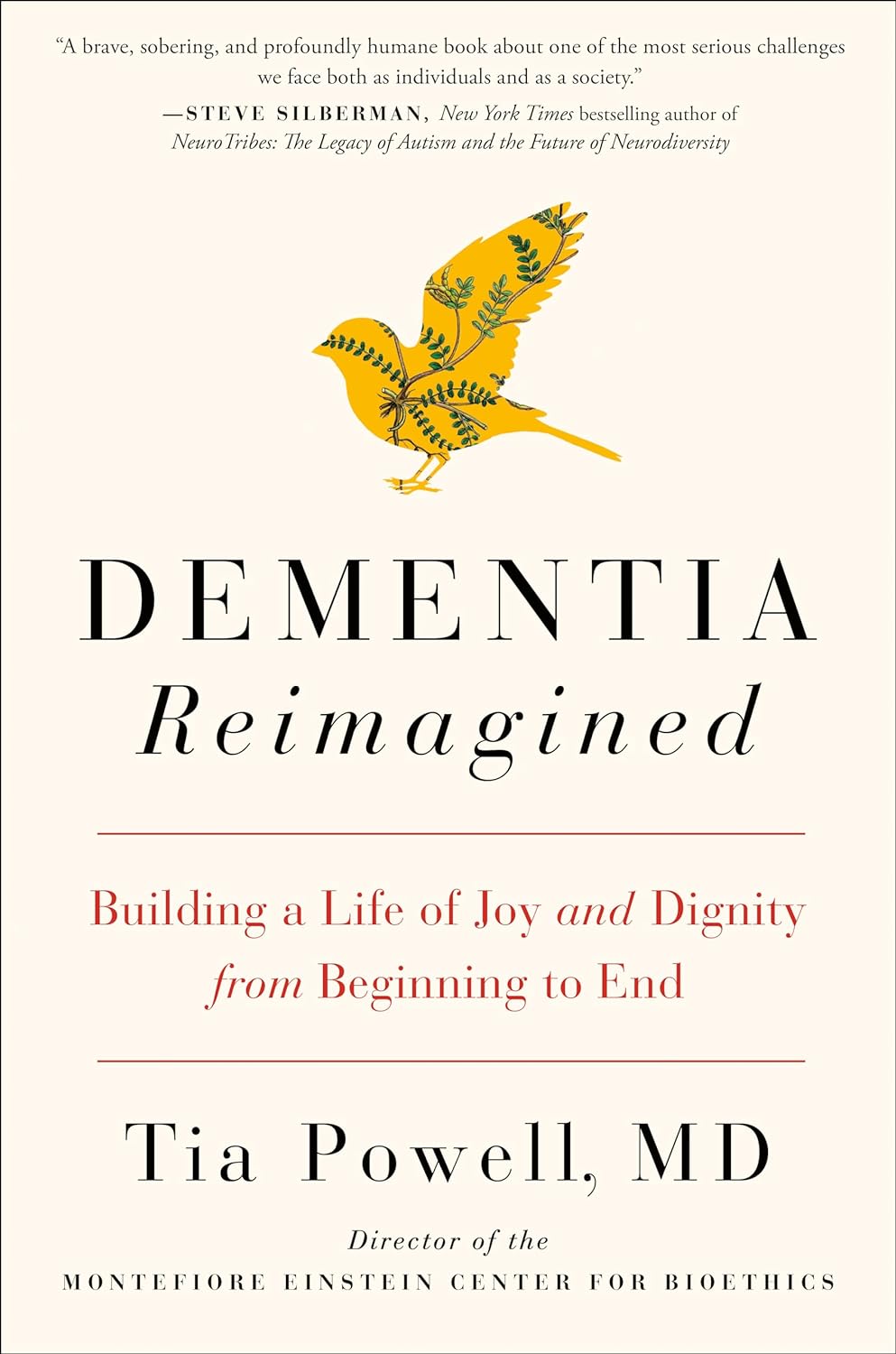
Key Insights:
- Historical Perspective: The book delves into the history of dementia care and how societal attitudes have evolved.
- Personal Stories: Dr. Powell shares personal anecdotes from her own family’s experiences, making the narrative relatable and heartfelt.
- Future of Care: It discusses innovative approaches and future directions in dementia care.
Tips for Caregivers:
- Advance Planning: Encourage open discussions about future care preferences and legal planning, such as power of attorney and living wills.
- Holistic Approach: Focus on the overall well-being of the person with dementia, including physical, emotional, and social aspects.
4.”The Alzheimer’s Solution” by Dean and Ayesha Sherzai, MD
Why This Book?
The Alzheimer’s Solution, by neurologist Drs. Dean and Ayesha Sherzai present a proactive approach to brain health, focusing on preventing and managing Alzheimer’s disease through lifestyle changes.
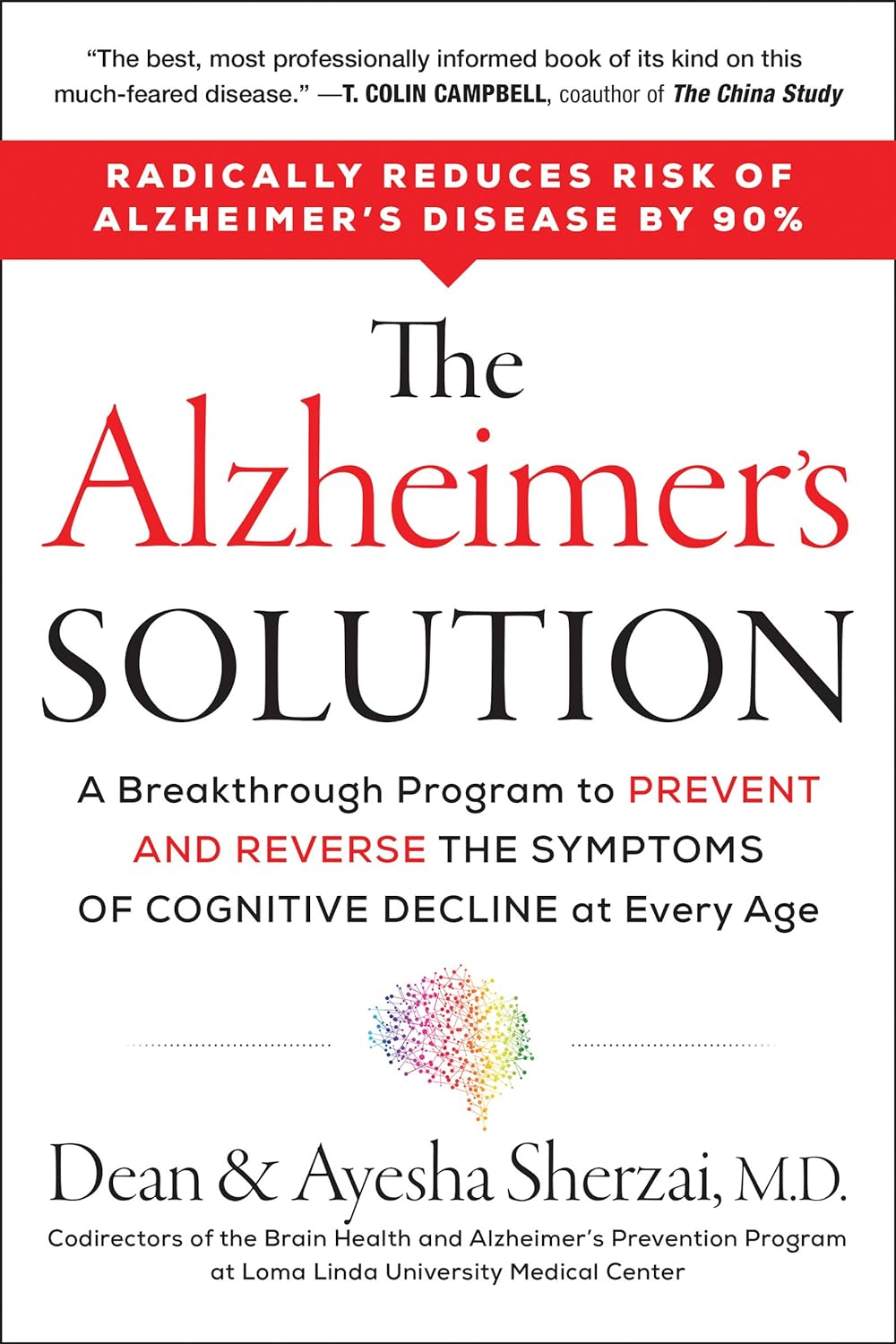
Key Insights:
- Lifestyle Factors: The authors highlight the impact of diet, exercise, sleep, stress management, and cognitive engagement on brain health.
- Preventative Measures: Take practical steps to reduce the risk or slow the progression of Alzheimer’s.
- Empowering Caregivers: Provides caregivers with tools to help their loved ones live healthier lives.
Tips for Caregivers:
- Nutrition: Encourage a plant-based diet rich in antioxidants and healthy fats.
- Mental Stimulation: Engage your loved one in activities stimulating the brain, such as puzzles, reading, or music.
5.”Creating Moments of Joy” by Jolene Brackey
Why This Book?
Jolene Brackey’s “Creating Moments of Joy” is a beautifully uplifting book focusing on the little things that can bring joy to someone with dementia.
Key Insights:
- Moments of Joy: The book emphasizes creating positive moments rather than focusing on the losses associated with dementia.
- Personal Stories: It includes touching stories and practical tips from the author’s experiences as a dementia care professional.
- Creative Activities: Ideas for activities that can bring happiness and engagement.
Tips for Caregivers:
- Memory Triggers: Use photos, music, and scents that can evoke positive memories and emotions.
- Patience and Flexibility: Be patient and flexible, going with the flow of the person with dementia rather than trying to adhere strictly to plans.
Further Reading and Resources
For those looking to dive deeper into understanding and managing dementia, here are a few additional resources:
Conclusion
Understanding a loved one’s progressing dementia requires a mix of knowledge, empathy, and practical strategies. These books offer not just insights, but practical tools and advice, empowering caregivers to navigate this challenging journey with more confidence and compassion. Remember, you’re not alone in this—there are numerous resources and communities ready to support you every step of the way.
Equipping yourself with the correct information and maintaining a compassionate approach can create a nurturing environment for your loved one, ensuring they live with dignity and joy. Happy reading and caregiving!





